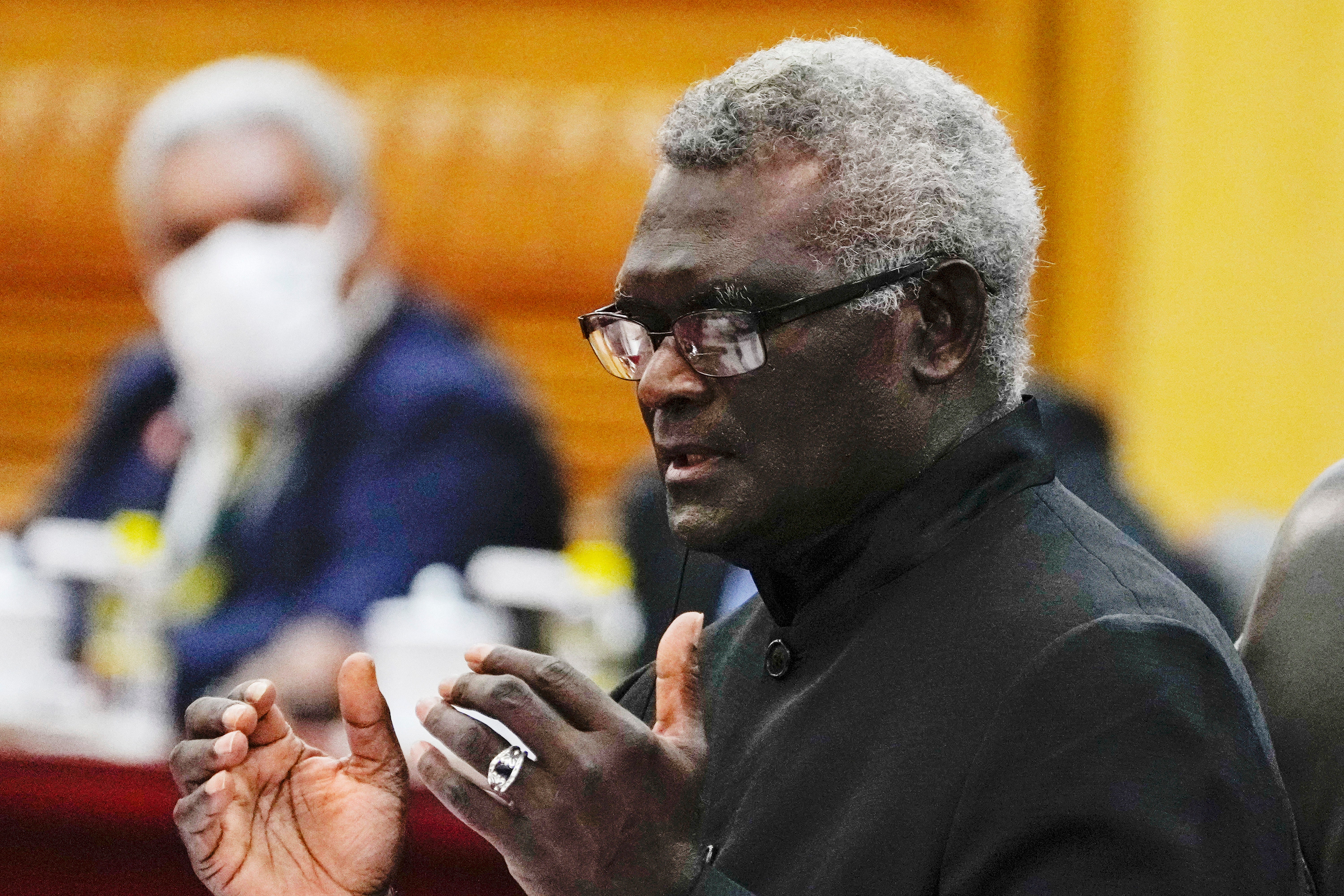Solomon Islands pro-Beijing prime minister won't keep his job following elections
Solomon Islands pro-Beijing Prime Minister Manasseh Sogavare has withdrawn from the contest to remain head of the strategically important South Pacific island nation’s government following general elections two weeks ago

Your support helps us to tell the story
From reproductive rights to climate change to Big Tech, The Independent is on the ground when the story is developing. Whether it's investigating the financials of Elon Musk's pro-Trump PAC or producing our latest documentary, 'The A Word', which shines a light on the American women fighting for reproductive rights, we know how important it is to parse out the facts from the messaging.
At such a critical moment in US history, we need reporters on the ground. Your donation allows us to keep sending journalists to speak to both sides of the story.
The Independent is trusted by Americans across the entire political spectrum. And unlike many other quality news outlets, we choose not to lock Americans out of our reporting and analysis with paywalls. We believe quality journalism should be available to everyone, paid for by those who can afford it.
Your support makes all the difference.Solomon Islands pro-Beijing Prime Minister Manasseh Sogavare on Monday withdrew from the contest to remain head of the strategically important South Pacific island nation’s government following general elections two weeks ago that are central to the U.S.-China rivalry in the region.
Sogavare has been re-elected to the parliament. But he told a press conference in the capital Honiara on Monday he would not be nominated as a candidate when the 50 newly elected lawmakers vote on Thursday for the prime minister, Australian Broadcasting Corp. reported.
Sogavare had hoped to become the first Solomons prime minister to maintain power in consecutive four-year terms following the April 17 election. During his previous term, China’s influence increased more in the Solomons than anywhere else in the South Pacific.
Sogavare switched diplomatic allegiances from Taiwan to Beijing and struck a secret security pact that has raised fears of the Chinese navy gaining a foothold in the region.
Sogavare said in his press conference he had been “vilified by media” and his family had been subjected to “unprecedented abuse,” the ABC reported.
Sogavare’s Ownership, Unity and Responsibility Party, known as the Our Party, won 15 seats in the election, more than any other party. The party’s candidate to become prime minister will be Foreign Minister Jeremiah Manele.
A prime minister needs the support of at least 26 lawmakers in the 50-seat chamber.
Observers expect China to have secretly backed more candidates than Sogavare at the election in a bid to ensure the government change does not diminish Beijing’s influence.
Sogavare could again return to power during the current four-year term. He was elected prime minister after the last election in 2019. But he has served as prime minister three times before 2019 because his predecessors had quit or were ousted by fellow lawmakers in a precarious political system.